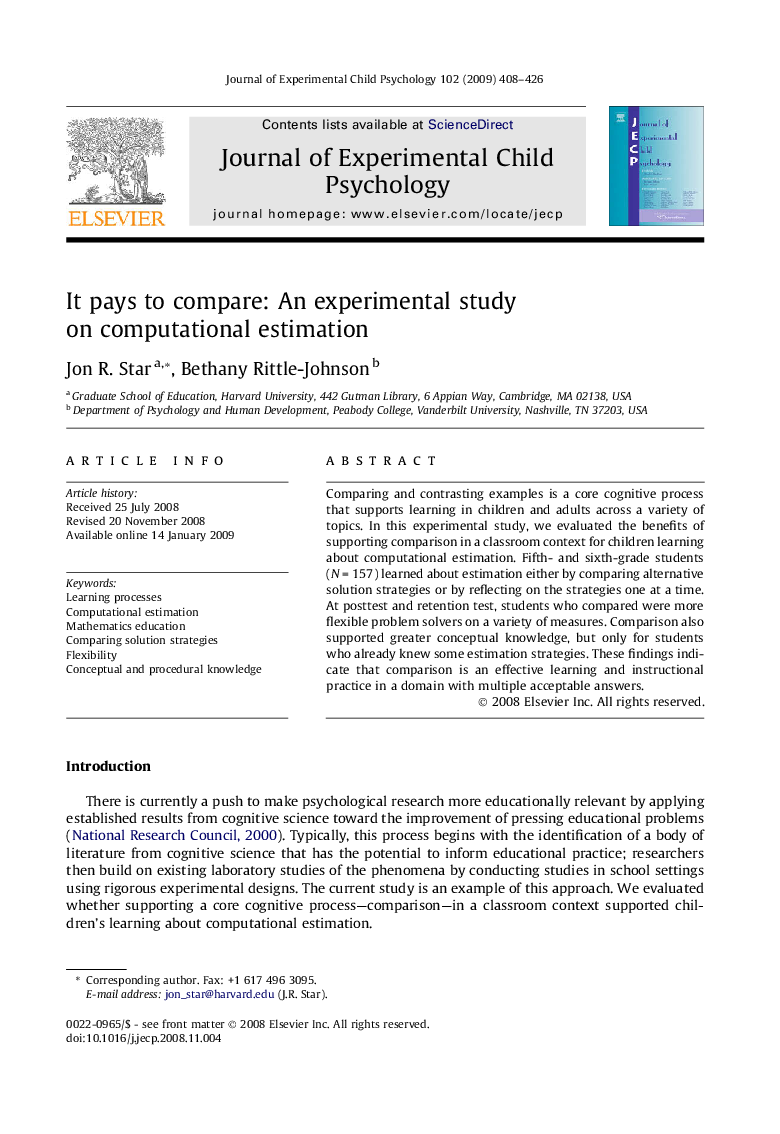| Article ID | Journal | Published Year | Pages | File Type |
|---|---|---|---|---|
| 918644 | Journal of Experimental Child Psychology | 2009 | 19 Pages |
Comparing and contrasting examples is a core cognitive process that supports learning in children and adults across a variety of topics. In this experimental study, we evaluated the benefits of supporting comparison in a classroom context for children learning about computational estimation. Fifth- and sixth-grade students (N = 157) learned about estimation either by comparing alternative solution strategies or by reflecting on the strategies one at a time. At posttest and retention test, students who compared were more flexible problem solvers on a variety of measures. Comparison also supported greater conceptual knowledge, but only for students who already knew some estimation strategies. These findings indicate that comparison is an effective learning and instructional practice in a domain with multiple acceptable answers.
